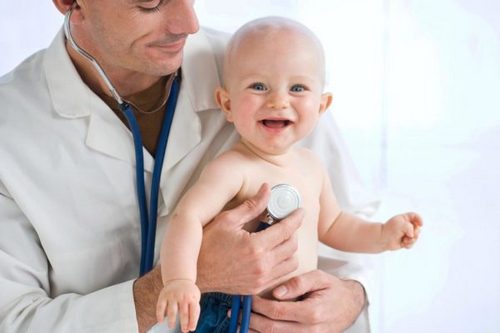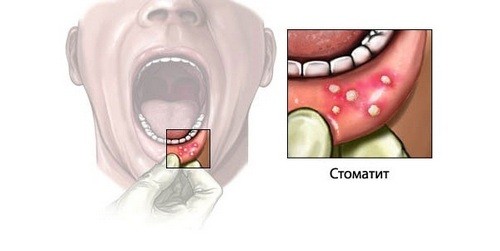Pregnancy is a wonderful period in a woman’s life. But not always she is destined to end with the birth of a child. Sometimes the body itself makes the decision to expel the nascent life from the female bosom. In most cases, a miscarriage occurs at the very beginning of pregnancy – in the first trimester.
But why and how does a miscarriage occur? There are many reasons – from the bad habits of the mother to the chromosomal pathologies of the fetus.
According to statistics, every fifth pregnancy ends in spontaneous abortion. To avoid this, a woman should know the causes, symptoms and signs of a miscarriage, as well as what to do if she is in a similar situation.
How does the pathology develop?
How a miscarriage occurs is a question that worries every woman who is faced with the threat of abortion. The body rejects the fetus as a result of the influence of negative factors. It is removed from the uterus either completely, which is characteristic of the first weeks of pregnancy, or partially. Often, women completely overlooked the symptoms of a miscarriage, not noticing their condition.
Depending on the reason, for example, the presence of an acute infectious and inflammatory process in the body (flu, rubella, etc.), the immune system begins to show aggression in relation to a developing pregnancy, as a result of which a miscarriage can occur. The formation of the mother’s connection with the unborn child is disrupted, the placenta ceases to function, the fetus is deprived of support and nutrition.
As a result, the fetal egg is torn away from the uterine mucosa and leaves it along with bleeding. Depending on the mechanism of development of a miscarriage, experts establish its causes.

Types of Miscarriages
Consider the main ones:
- Incomplete miscarriage, also called inevitable. In this case, the woman notes pain in the sacrum and lower abdomen, which is accompanied by bleeding and expansion of the cervix. If we are talking about the inevitable miscarriage, then in this case there was a rupture of the membranes. For an incomplete miscarriage, the symptoms of pain and spotting are constant.
- A complete miscarriage means that the fetal egg or fetus is completely expelled from the uterine cavity. In such a situation, bleeding can stop on its own, like other symptoms.
- A failed miscarriage. The embryo or fetus dies, but remains in the uterine cavity. Usually this condition is called a frozen pregnancy, and it is discovered by chance during a planned ultrasound examination or examination of a gynecologist.
- Anembryony. Despite the merger of the germ cells of a man and a woman, the fetus does not begin its development in the uterus. In this condition, signs of pregnancy may be noted and even a gestational bag and corpus luteum can be diagnosed with ultrasound, but the child is absent, curettage is necessary, as after a miscarriage.
- A repeated miscarriage is diagnosed in a woman if she has had at least three spontaneous abortions one after another. This violation occurs rarely, no more than in 1% of families. Usually it is included in the group of consequences after a miscarriage.
- Chorionadenoma. This violation is also preceded by fertilization, but during it breakdown of chromosomal information occurs, and instead of the embryo, tissues develop in the uterus, which grow and increase over time. Pathology may end spontaneously as a miscarriage, or require cleaning of the uterine cavity.

Causes
About 20% of pregnancies end in a miscarriage. Most often, this happens at a time when the woman herself does not yet know about her situation. But this can also be with those who planned pregnancy and managed to rejoice at its onset. Why is this happening?
The causes of miscarriage in early pregnancy (mainly up to 12 weeks, since it is the first trimester that is the decisive link in this matter) will be as follows:
- Chromosomal problems in the fetus. Experts believe that in approximately 73% of cases, pregnancy is terminated solely due to genetic disorders. Moreover, chromosomal mutations are far from always inherited at the genetic level; negative environmental factors, for example, radiation, viruses, and much more, can influence their occurrence. It is believed that in this case the pregnancy is terminated by the type of natural selection, that is, initially such an embryo is not viable. Therefore, we are talking about a condition such as a miscarriage that occurs much earlier than at 12 weeks of gestation. Many women do not even know that they were pregnant, perceiving unexpectedly heavy periods for menstrual irregularities.
- Hormonal disorders. Hormonal fluctuations in the early stages of pregnancy often lead to its termination. Usually the culprit is progesterone – a hormone aimed at supporting pregnancy. If the problem is detected on time, the fetus can be saved. An excess of male hormones – androgens, which inhibit the synthesis of progesterone and estrogen, can also provoke spontaneous abortion. Usually this leads to repeated repeated miscarriages.
- Immunological problems. Most often occur with Rh incompatibility of the blood of the mother and fetus. In this case, the child inherits the Rhesus factor of the father with the “+” sign, while the mother has the Rh factor “-”. The immune system of a woman perceives a positive Rh embryo for foreign bodies, starting an active fight against them.
- Infection. The causative agents of cytomegalovirus, herpes, chlamydia and other pathogenic bacteria and viruses infect the membranes and the fetus in the uterine cavity, causing a miscarriage. To avoid this, you need to prepare for pregnancy and treat any infectious and inflammatory processes in the body on time. Common infectious diseases are also fraught with a threat to the development of the fetus, these include influenza, rubella, etc. All these diseases occur with intoxication damage to the woman’s body and a strong increase in body temperature, which can cause a miscarriage.
- Past abortions. This is not just a medical procedure aimed at removing the fetus and membranes from the uterus. This is also a serious stress for a woman’s body, which can give complications. For example, dysfunctional disorder of the ovaries, changes in the functions of the adrenal glands, inflammatory phenomena in the reproductive system. In the future, all this leads to infertility and problems with bearing subsequent pregnancies.
- Taking medications and medicinal plants. Almost all pills and other drugs in the first trimester are dangerous, since the fetus is actively forming. Most drugs provoke malformations of the fetus or disrupt the formation of the placenta, all of which can lead to spontaneous abortion. Pills that can cause an early miscarriage, for example, at week 12 – hormonal drugs, narcotic analgesics, etc. Not only a medicine can cause a miscarriage, but also some medicinal herbs that are quite harmless at first glance, mint, parsley, nettle, tansy and much more.
- Stress. Any mental shock is dangerous for pregnancy. If stress has not been avoided, it is important to contact a specialist for help to prevent the possibility of a miscarriage.
- Bad habits. Alcohol abuse, smoking, drug addiction can cause an early termination of pregnancy. If a woman wants to give birth to a healthy and strong baby, she must give up addiction at the stage of conception planning and ask a partner about it.
- Excessive exercise. Rough sexual intercourse, falling, lifting weights sometimes become the trigger for a miscarriage. Pregnancy is a time when you need to be as careful about your own health as possible.

Symptoms
What are the symptoms of a miscarriage? The first sign is abdominal pain, which is soon associated with bloody discharge. Painful sensations are not always localized in the lower abdomen, many women note that they give most intensively to the sacral region.
Discharge from the genital tract may be different, varying in color and intensity. But their detection, in any case, requires the advice of a doctor. Spotting weak discharge may indicate a threat of miscarriage and the possibility of saving the pregnancy. Excessive uterine bleeding, especially with particles of tissue and clots, speaks for itself – the fetus is dead, and cleaning is necessary after a miscarriage.
These signs are characteristic for any period of pregnancy, so it does not matter at what week they appeared. It is more important to know what symptoms are characteristic of losing a child, and what measures should be taken in this situation.
There are 4 stages of miscarriage, consider them briefly:
- Threatening miscarriage. A woman complains of pain in the lower back and lower abdomen. Minor spotting of the vagina may appear. In this case, pregnancy can still be saved.
- Beginning miscarriage. The pain is growing, it becomes like a fight. Allocations increase. Weakness and dizziness appear. The chances of preserving the fetus are minimal.
- Miscarriage in use. The pain intensifies, bleeding is significant. The death of the fetus at this stage is obvious. The fetus may leave the uterus along with bleeding completely, or may need cleaning after a miscarriage.
- A completed miscarriage. The fetus and its membranes are expelled, the uterus contracts after a miscarriage. Bleeding stops. An ultrasound scan is necessary to determine the condition of the uterus and the presence of residues of the ovum.
How soon does a miscarriage occur?
Pregnancy is usually terminated in the first trimester due to the fact that the fetus is not viable. More often this occurs during the period of the alleged onset of menstruation, and then the woman may not even know that she was pregnant. If this happened later, the fetal egg rarely comes out completely; vacuum cleaning of the uterus is necessary after a miscarriage.

Pregnancy is much less common in the second trimester. This condition is called a late miscarriage.
Diagnostics
Diagnosis of a miscarriage is easy for a specialist. The doctor examines the patient on a gynecological chair, determining the conformity of the size of the uterus to the pregnancy, the presence of tone, the condition of the cervix and the nature of the discharge. For a final assessment of the condition of a woman, an ultrasound is prescribed. With its help, the specialist sees the localization of the fetal egg, the presence of detachment or its complete absence.
Based on the diagnostic examination, the subsequent tactics of therapeutic actions are decided. If pregnancy can be maintained, the woman is sent to a hospital. If we are talking about fetal death, the patient needs cleaning after a miscarriage and treatment.
Is it possible to independently determine that there was a miscarriage?
Independently determine what happens miscarriage , difficult, if the period of pregnancy is small and the woman did not know anything about it; another thing is if spontaneous abortion occurred later, for example, at 12 weeks. In this case, the woman simply will not be able to miss the symptoms associated with the death and expulsion of the fetus. This situation requires a mandatory visit to a doctor, since cleaning will be necessary after a miscarriage.
Therapy
Therapeutic measures are completely dependent on the results of ultrasound and the clinical manifestations of the pathology. With a threatening and beginning miscarriage, a woman is prescribed treatment aimed at preserving the pregnancy.
If the fetal egg has peeled off and bleeding has begun, then the pregnancy has already ended, and cleaning or curettage after a miscarriage is necessary.
With a miscarriage at a later date, for example, at 28 weeks, funds are needed to reduce the uterus and artificially cause contractions (oxytocin). After the fetus is expelled so that the uterus contracts better and the bleeding decreases, an ice bubble is placed on the woman’s stomach.
Treatment after a miscarriage does not end there. A woman should be examined to determine the cause of a miscarriage: pelvic ultrasound, diagnosis of infections, hormones, cytogenetic examination of the fetal egg, etc. For a period of up to 6 months, a woman is prescribed oral contraceptives to restore the reproductive system and prevent an unwanted pregnancy, since sex soon after a miscarriage may lead to a second situation. The body needs to give time to get stronger.
Complications after a miscarriage
Complications after a miscarriage are often associated with the fact that the situation may recur. Therefore, it is important to undergo rehabilitation and find out why the failure occurred and when you can become pregnant again.
If treatment after a miscarriage is ineffective, a woman may experience the following complications:
- the development of inflammation in the organs of the reproductive system, followed by the chronicization of the process into endometritis, salpingoophoritis, adhesions, etc.;
- hormonal disorders;
- problems with conception and secondary infertility.
In addition, the frequent consequences after a miscarriage are extreme stress, depression, psychological experiences of a failed mother.
Prevention
It is impossible to prevent a miscarriage at 12 or any other week of pregnancy due to genetic factors – it is impossible to influence genetics. But to adjust the lifestyle, to take care of their health under the power of every woman who wants to have children.
So, how to minimize the likelihood of a miscarriage and complications after it:
- pre-plan pregnancy, having established nutrition, abandon bad habits, undergo examinations and treatment;
- after the onset of pregnancy, to direct all efforts to preserve it, for example, to timely put a ring in the event of a threat of miscarriage;
- avoid stress, physical and psychoemotional overwork, visit a gynecologist on time.
Since complications after a miscarriage can be serious, it is recommended to plan a new pregnancy six months after the failure. At this time, doctors advise using hormonal contraceptives, in which the body recovers faster.
According to statistics, sex after a miscarriage already on the twelfth day of the cycle can lead to a new pregnancy. Some women take advantage of this, wanting to quickly forget a failed pregnancy. Thus, they expose themselves to a new blow, because a weakened organism can again reject the fetus. Do not rush, only time and effort will help set up the reproductive system to expect a baby.




